On the first anniversary of the “Belt and Road” International Cooperation Summit Forum on May 25th, the Chinese People's Institute of Foreign Affairs held a special exchange seminar with the delegation of Nizami Ganjavi International Centre (hereinafter referred to as "Nizami Centre"). Under the chairmanship of the President of the Chinese People's Institute of Foreign Affairs, Wu Hailong, the three parties conducted in-depth discussions on three major issues including China-EU economic and trade relations, development of the “Belt and Road” constructions, as well as global governance.
Members of the Nizami Centre delegation are former politicians from countries along the Belt and Road Initiative and former officials of international organizations, which include: Boris Tadic, former President of Serbia; Valdis Zatlers, former President of Latvia; Zlatko Lagumdzija, former Prime Minister of Bosnia and Herzegovina; Ismail Serageldin, former deputy governor of the World Bank.
Through this discussion, the Taihe Institute and Nizami Centre have enhanced mutual understanding. The Nizami Centre has always been committed to promoting the exchange and mutual-learning of diverse cultures and is paying close attention to the construction of China’s Belt and Road Initiative. Since its establishment in 2012, the Nizami Centre has become a high-end platform for global leaders and elites to share wisdom and experience, with over 60 former political figures and more than 500 eminent personalities from 54 countries attended and participated in various types of activities organized by the Centre. In the future, the Taihe Institute will work together with the Nizami Centre to open up channels for promoting world exchanges and to further strengthen the mutual understanding and trust of different regions, countries and nations.
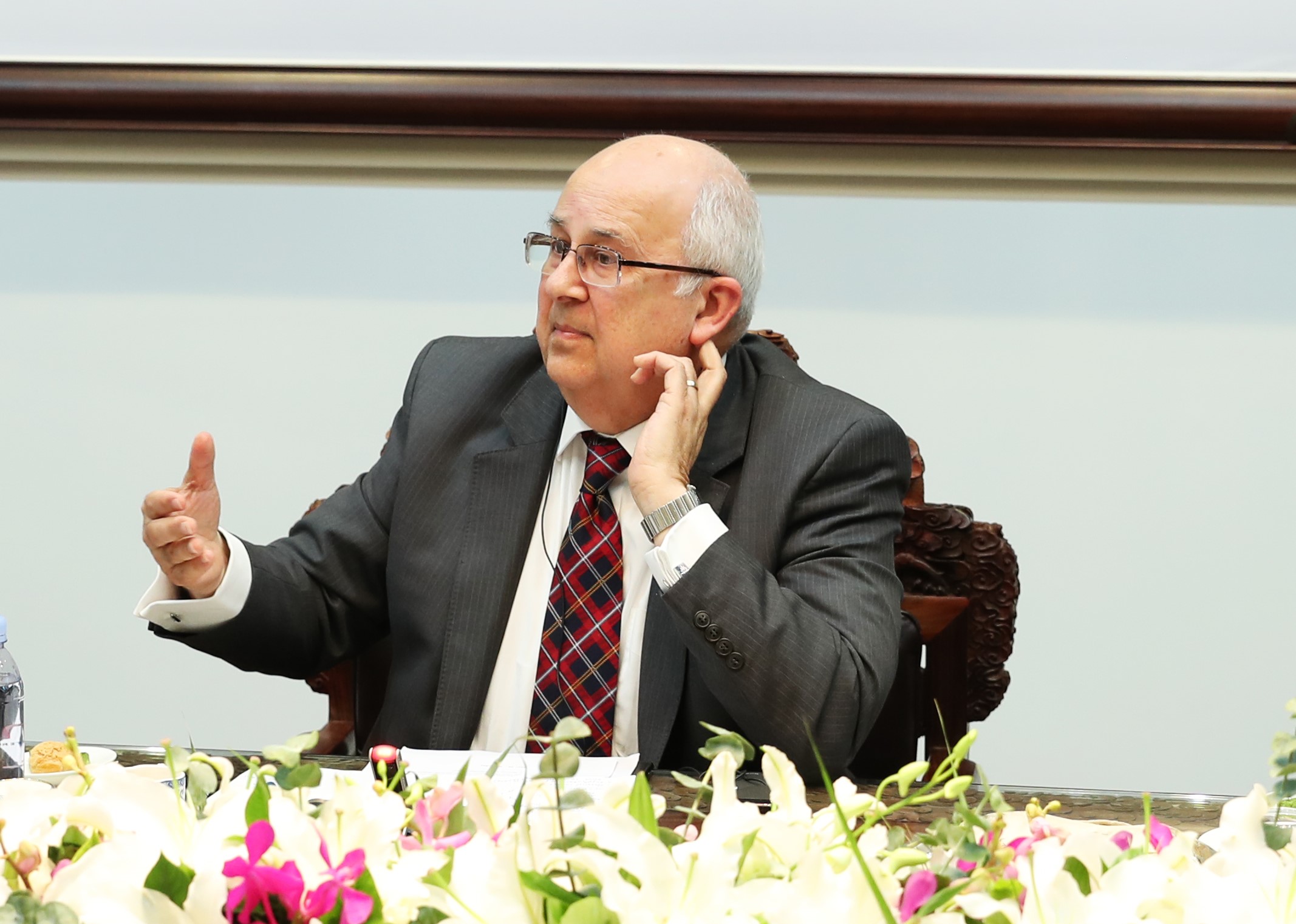
Integration of some key points
I. Issues on China-EU Economic and Trade Relations
Nizami Centre: China-EU relations include three levels, China and the European Union, China and European countries, and the "16+1" mechanism that jointly constructed by China and the Central and Eastern European countries. In the future, the EU will continue to expand, which is a trend, but the EU does not represent entire Europe, and its internal integration and external expansion also face many problems that need to be resolved urgently. It is a wise move for China and the Central and Eastern Europe to establish the "16+1" mechanism, which will have a significant impact on the development of China-EU relations. With the continuous growth of the world economy, China-EU relations will continue to adjust to the growth of the world economy in the future. At present, there is a problem in China's investment in Europe, that is, most of the financing comes from state-owned enterprises, while investment from private enterprises is relatively limited, which needs to be further adjusted and balanced.
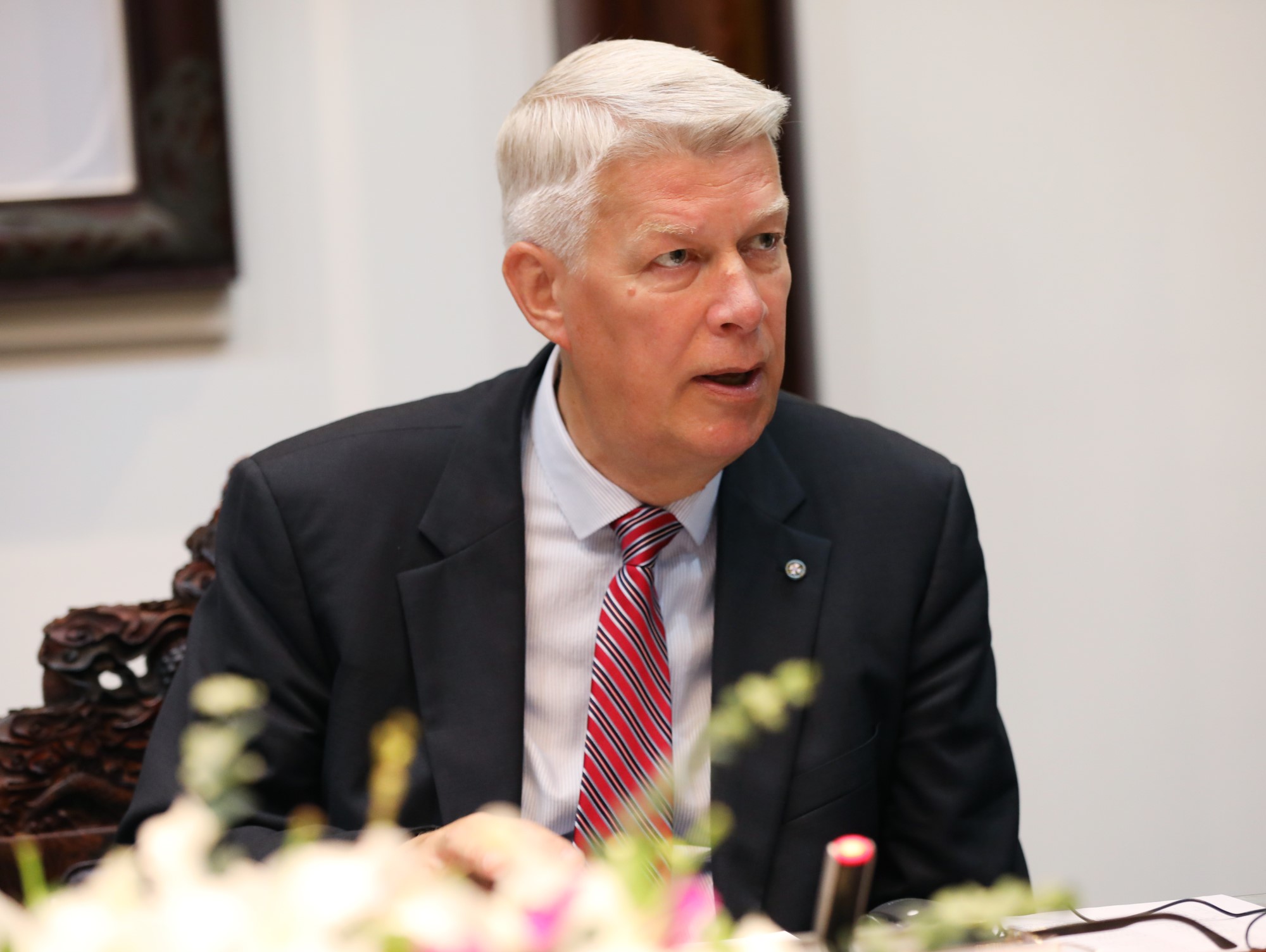
The Chinese People's Institute of Foreign Affairs: As two major civilizations and two major markets, China and the EU need to further strengthen cooperation and exchanges. While recently, Europe, especially some Western European countries, have issued some voices of distrust and questioning towards China. It is even thought that China's strengthening of "16 + 1" cooperation is a division of Europe and there is a tendency toward trade protectionism against China. In fact, China's importance to Europe in the field of economy and trade is increasing day by day. In the current context of the United States' unilateral trade protectionism policy and its adverse impact on the entire international trade environment, China and the EU, both as beneficiaries of open international trade, should work together to deal with it.
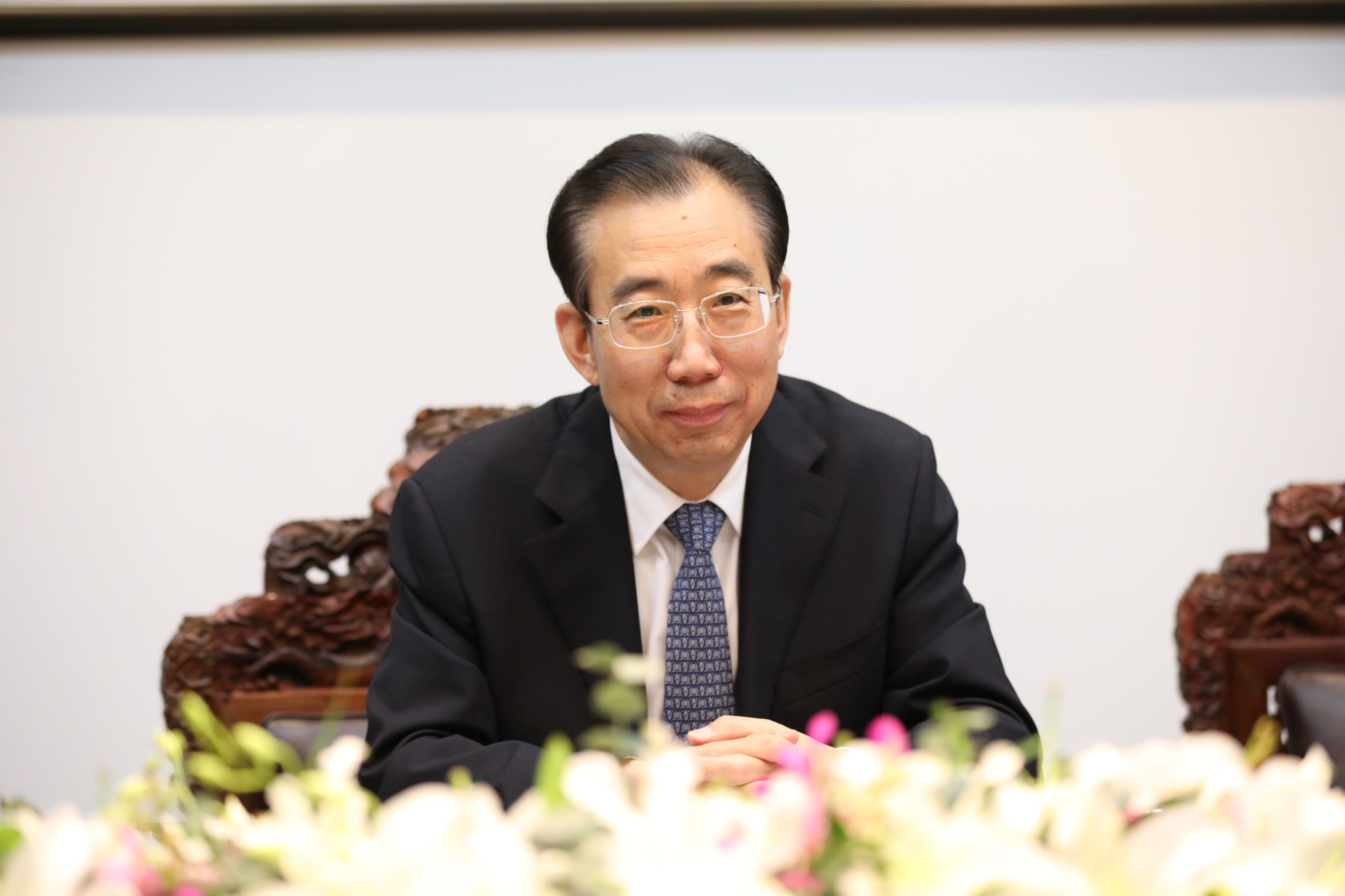
The Taihe Institute: Economic and trade relations are the ballast stones and thrusters of China-EU relations. The economic and trade relations between China and Europe have been developing well, and the EU is China's most important trading partner. In 2017, bilateral trade volume between China and the EU was $616.9 billion with year-on-year growth of 12.7%. At the same time, the EU is also one of China's most important investment partners. At present, the EU's investment in China is second only to Hong Kong, and bilateral economic and trade relations have entered a new stage of rapid development. Since the establishment of the "16 + 1" mechanism in 2012, the economic and trade relationship between China and the Central and Eastern Europe has developed rapidly. The cooperation between the two sides in infrastructure and other areas has been fruitful. The role of the Central and Eastern European countries in the Asia-Europe Continental Bridge has been continuously enhanced. In the future, the “Belt and Road” Initiative and the "16+1" mechanism will play a more significant role in promoting China-EU cooperation. At the same time, China also hopes to build closer economic and trade relations with the European Union and other Europe countries, in a way to help narrow the economic development gap of Europe countries.
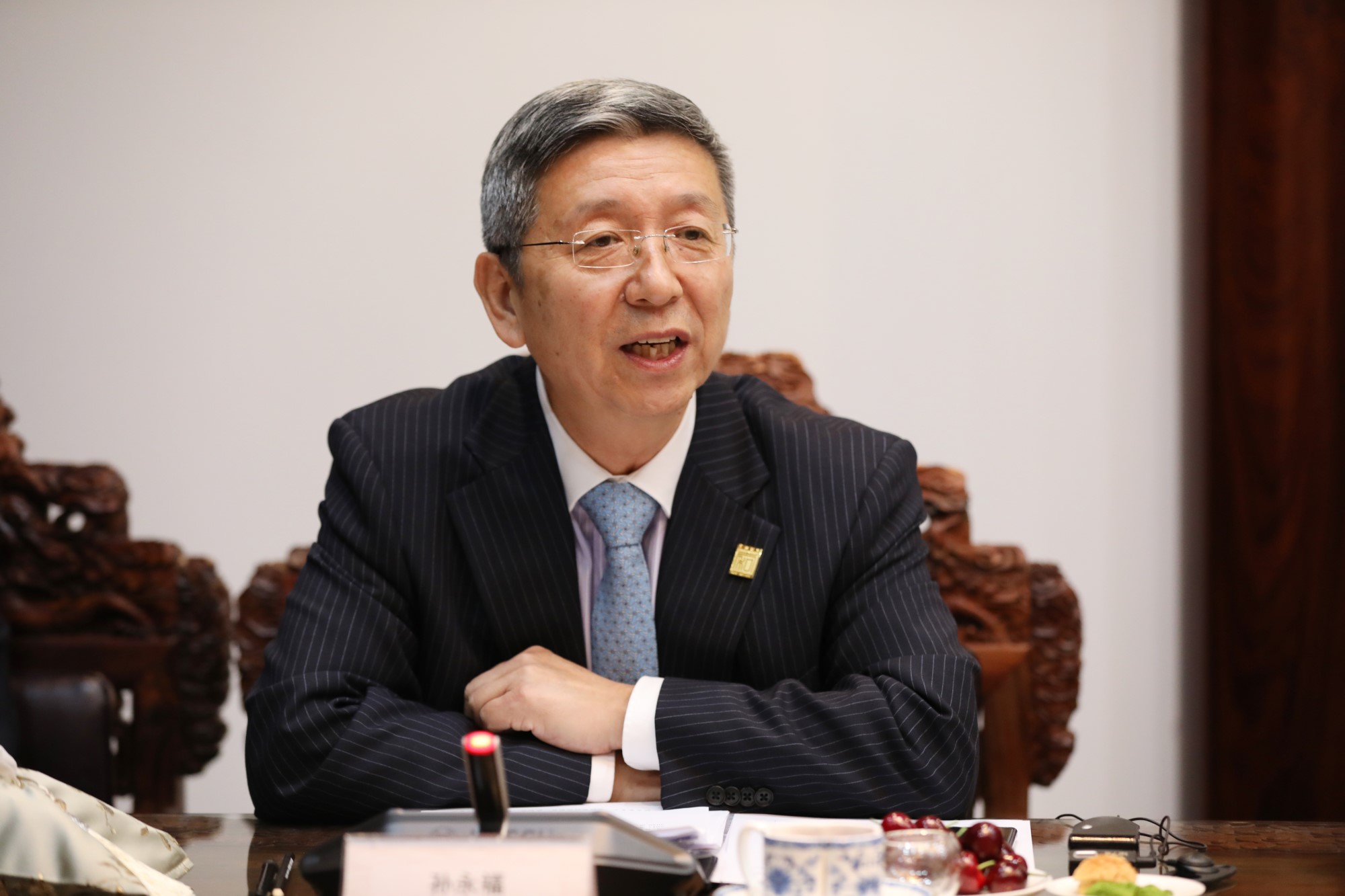
II. Issues on the Development of the “Belt and Road” Construction
Nizami Delegation: Some politicians in western European countries have concerns about the “Belt and Road” Initiative and believe that this is China’s response to the challenge of the United States. Some small countries have also raised doubts about China as a result of the misunderstanding. Because of both political factors and economic fair competition considerations, some Central and Eastern European countries have been challenged and pressured by certain European powers when cooperating with China in the process of the “Belt and Road” construction. China's Belt and Road Initiative reflects China’s internal needs, the development of its construction is facing challenges and tests concerning security, culture, etc., among which the most important is to win the understanding and trust in China's will. China should do an excellent job of publicizing and interpreting foreign affairs through various forms, such as holding forums at home and abroad, and exerting the influence of enterprises, especially private enterprises.
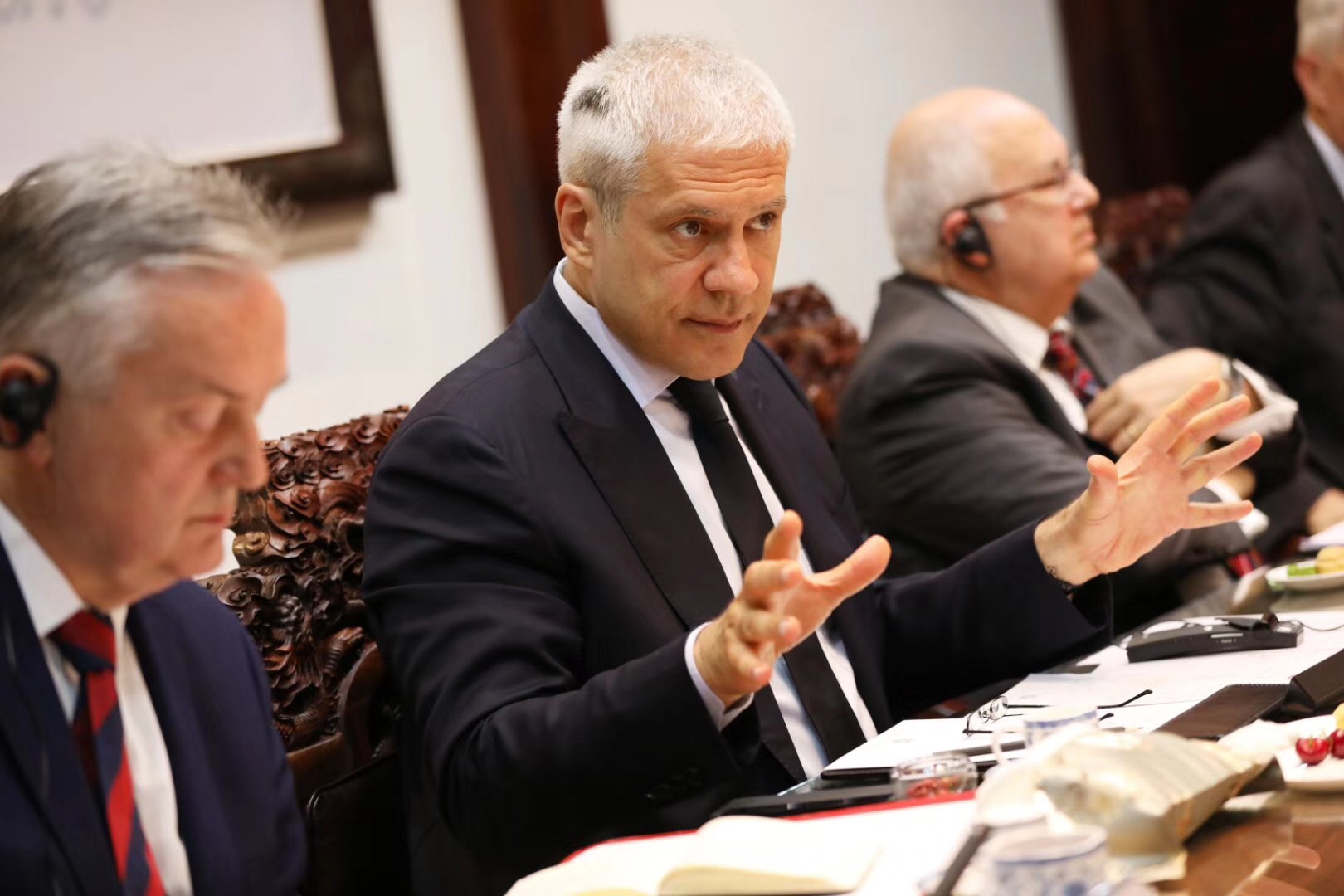
The Chinese People's Institute of Foreign Affairs: Many people in Europe believe that the “Belt and Road” Initiative is China's grand strategy whose purpose is to win world leadership, which is a misunderstanding. In fact, the “Belt and Road” is an initiative based on China's basic judgment and understanding of today's world and its development, reflecting China's open attitude towards the world. The experience of China over the past few decades proves that openness brings progress and closeness leads to backwardness. At present, the imbalance in global economic development has become increasingly prominent. By strengthening infrastructure connectivity and advancing the free flow of economic factors, promoting efficient resource allocation and deep market integration, the “Belt and Road” Initiative is conducive to the construction of an open, inclusive and universally beneficial global economic cooperation framework which helps to solve the problem of global economic imbalance. Following the principle of “achieving shared growth through discussion and collaboration”, the “Belt and Road” Initiative acts as an international cooperation platform and global public product which is open to all countries, rather than an exclusive, closed circle.
The Taihe Institute: China's proposition of the “Belt and Road” Initiative not only has taken the demand for domestic economic reform and development into consideration, but also is based on the international responsibility due to a big country. In the context of globalization, the development of the “Belt and Road” construction will help increase the cooperation and development of all countries, which is beneficial to China as well as the world. The “Belt and Road” Initiative is not a unilateral action, but a communication action. It is not a geopolitical expansion strategy, but a Chinese plan based on the global economic development situation whose purpose is to create a mutually beneficial and win-win platform. China has not put forward the slogan of "China First" as the United States, so that everything will be carried out on the basis of mutually beneficial negotiations. Political mutual trust is essential for the development of the “Belt and Road” construction. In this regard, China has established a good model for countries related to Central Asia and Central and Eastern Europe, but there is still a need to further strengthen political trust with Western European countries. The “Belt and Road” construction is unprecedented in scope, and the task is arduous. It faces political, economic, cultural, scientific and technological, financial and religious challenges. Therefore, the demand and interests of all parties should be embodied in accordance with the situation, opportunity and cause. The “Belt and Road” Initiative can be indeed transformed into an international business by strengthening external propaganda, policy communication, practice innovation and experience popularization, to promote international political and economic order for the better development, and promote human civilization into a new stage of development.
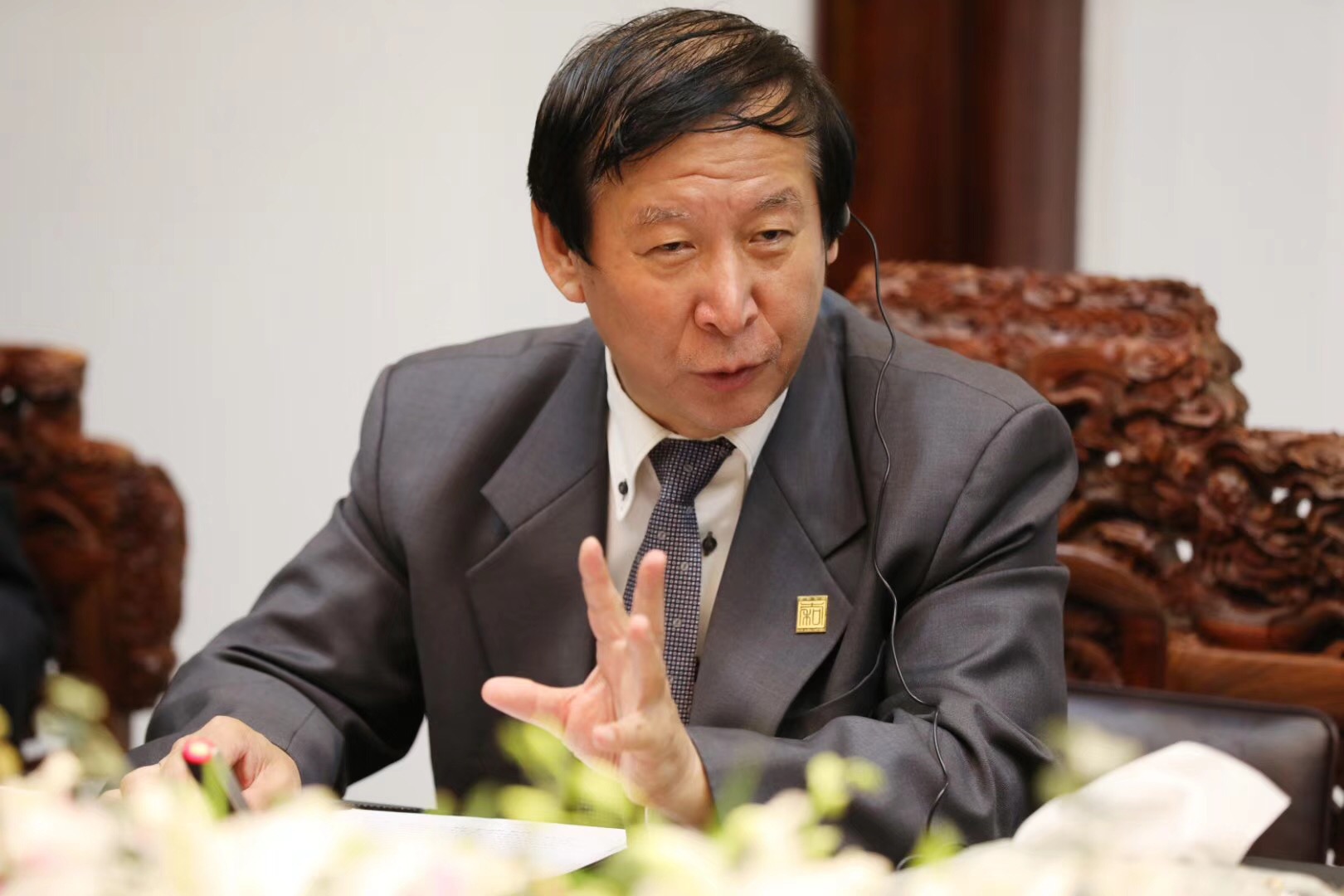
III. Issues on Global Governance
Nizami Centre: The current global governance faces a lot of problems. First of all, the population of humankind is continuously increasing. However, except Africa, there are problems with the ageing population in the other places. It is necessary to reshape social structure relations in order to cope with the demographic changes. At the same time, the rapid growth of the African population has also triggered issues such as food security, poverty, and immigration. Second, in dealing with environmental and climate change, it is not enough to merely change the energy structure, and preparations for the natural disasters resulting from it are also necessary, especially in some poor countries. China has excellent experience in sharing in this regard. Third, the rapid development of information technology, biotechnology and material technology will significantly change the way of human life and lead to a great change in economic relations, which has put forward new demands on social governance. Fourth, the supply chain of the manufacturing industry is becoming more and more globalized, which will lead to changes in a range of trade relations, such as tariffs, and it is not enough to solve the problems arising solely depending on top-down negotiations led by national policy. Besides, there are problems such as clan, language extinction, personnel flow and uneven development of different countries and so on.
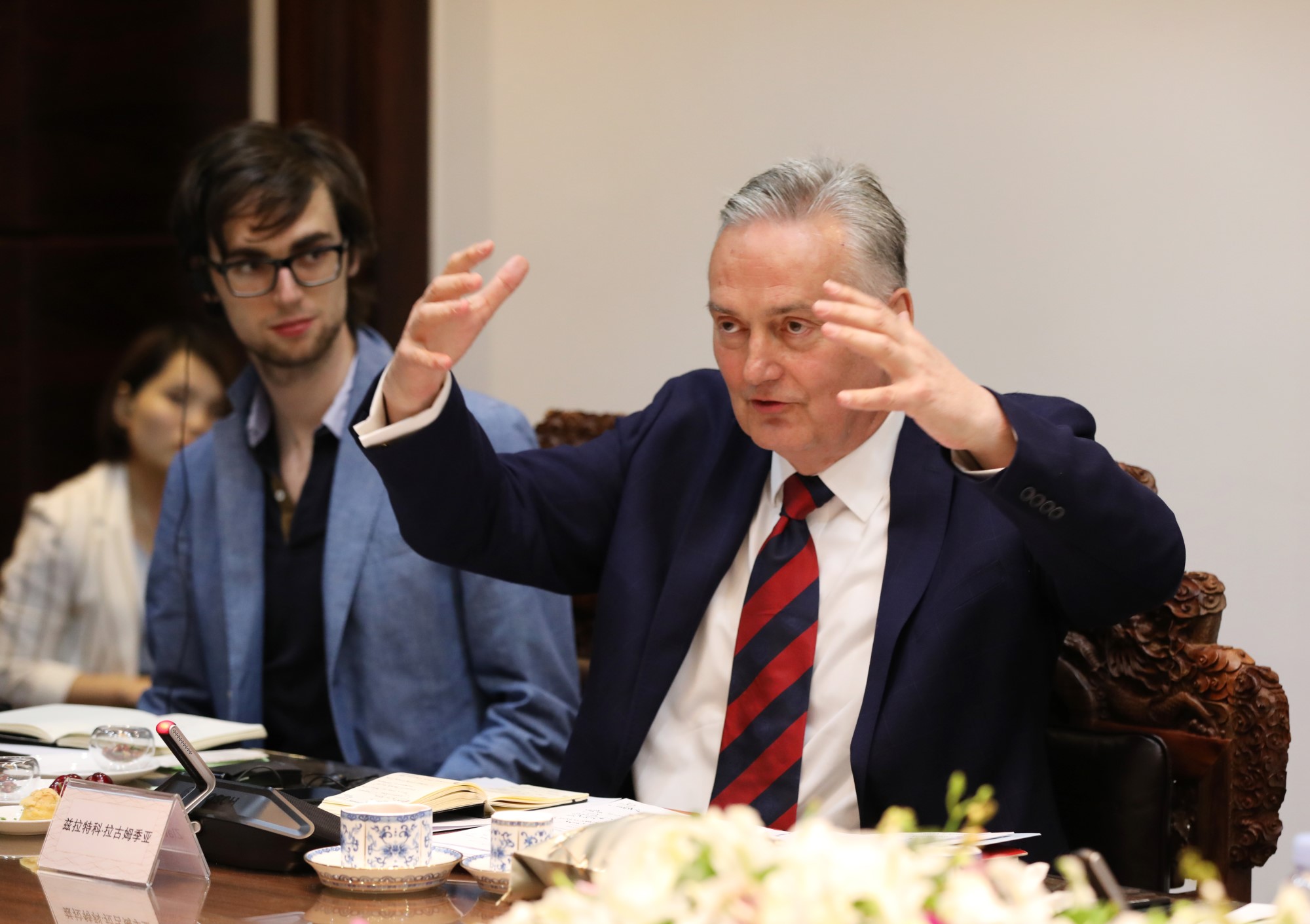
Global governance requires the formation of corresponding political procedures and legal procedures, so that all countries can participate in decision-making. Human needs a new world order and a global governance mechanism that is different from the past, in which China plays a significant role. Of course, before the emergence of a new supporting mechanism, it is impossible nor should we entirely discard the old ones.
The Taihe Institute: After World War II, under the leadership of the United States, the world has entered the globalization process, however, ever since Trump took office in 2016, the globalization process has shown a reversal momentum. In the globalization process dominated by the USA after World War II, most countries are beneficiaries, especially the United States, including of course Europe and China. But in the United States, the benefit groups are mainly financial capital and transnational consortium with financial capital as their main body. The capital interests of industrial entities have been impacted because they have been subjected to competition from developing countries, especially China and other small and medium-sized countries. The U.S. Industrial Capital Group not only includes the manufacturing bosses, but also includes the working class who sells the labor force and part of the middle class, and Trump took office due to their supports. While Trump's response to economic nationalism also led to the transformation of the United States from a dominant globalization state into an anti-globalization state. This kind of economic nationalism also exists in Europe, and its power is not small, yet it has not acquired the right to govern. The world has thus formed two camps: the globalized profit camp and the impaired camp of globalization. This change will have a significant impact on human society over the next few decades.
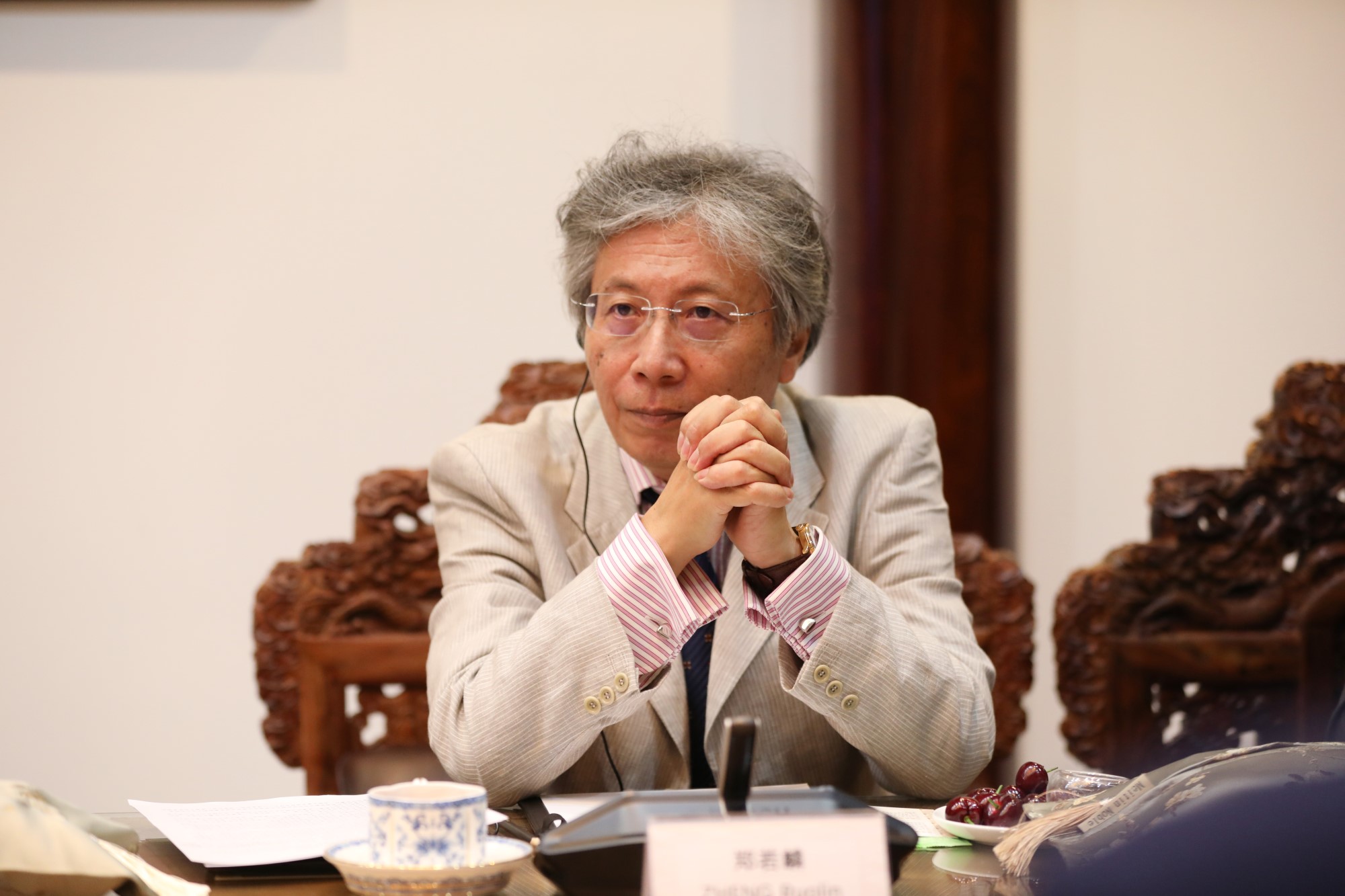
At present, the Trump administration is making use of the three major advantages of the United States: finance, military, and science and technology to advance the anti-globalization process, which will have a huge impact on global governance and the world political and economic order. Take the matter of climate change as an example, after Trump took office, the United States withdrew from the Paris Climate Agreement. Due to the dominant and dominant position of the United States in many fields, the Paris Climate Agreement has entered a dead corner. Also, recent Sino-US trade frictions and the U.S. withdrawal from the Iranian nuclear agreement also prove that the U.S. is using its superpower to re-intensify its hegemonic position. The core of this hegemony lies in two points: First, U.S. interests override those of other countries. Second, any country's actions must conform to U.S. foreign policy and domestic laws, or they will face the threat of sanctions. This will not only have a significant impact on China and Europe, but also cause the economy of some small and medium-sized countries to plunge into a state of colonization, because without the United States, these small and medium countries will not be able to take advantage of their comparative advantage to occupy a place in the global production chain. If this practice of the United States continues while other countries do not stand to revolt, then world trade is likely to be placed under the control of the United States.

-

- China-US trade war not yet at climax 18 September , 2018
-

- Comparing SCO to NATO inappropriate 16 September , 2018
-

- Sustainability and climate action: overcoming psychological ... 11 October , 2018
-

- 2018 Taihe Civilizations Forum Content Highlights 15 April , 2019
-
2018 Content Highlights
-

- Rashid Alimov Secretary-General of the Shanghai Cooperation Organization(2016-2018).
-

- Mohamed Sameh Amr Professor of International Law Department at Cairo University. He is also a ...
-

- Irina Bokova Distinguished Fellow of Taihe Institute, Director-General of...
